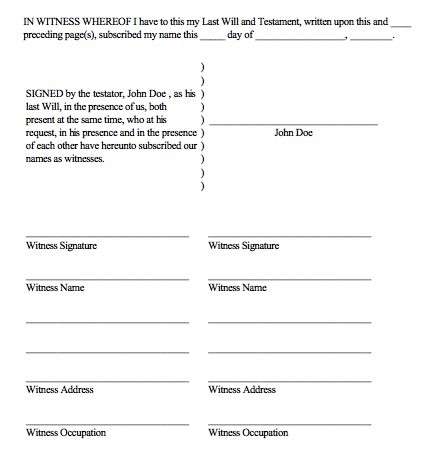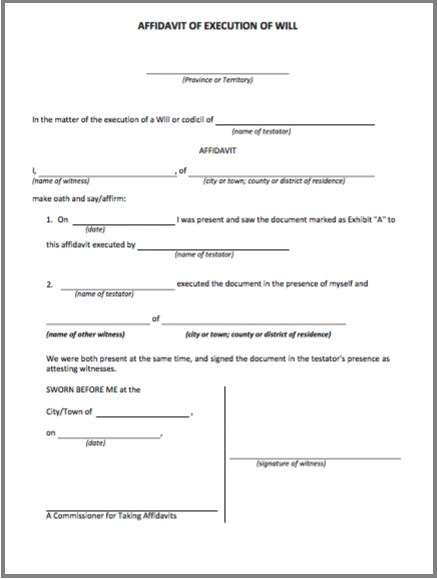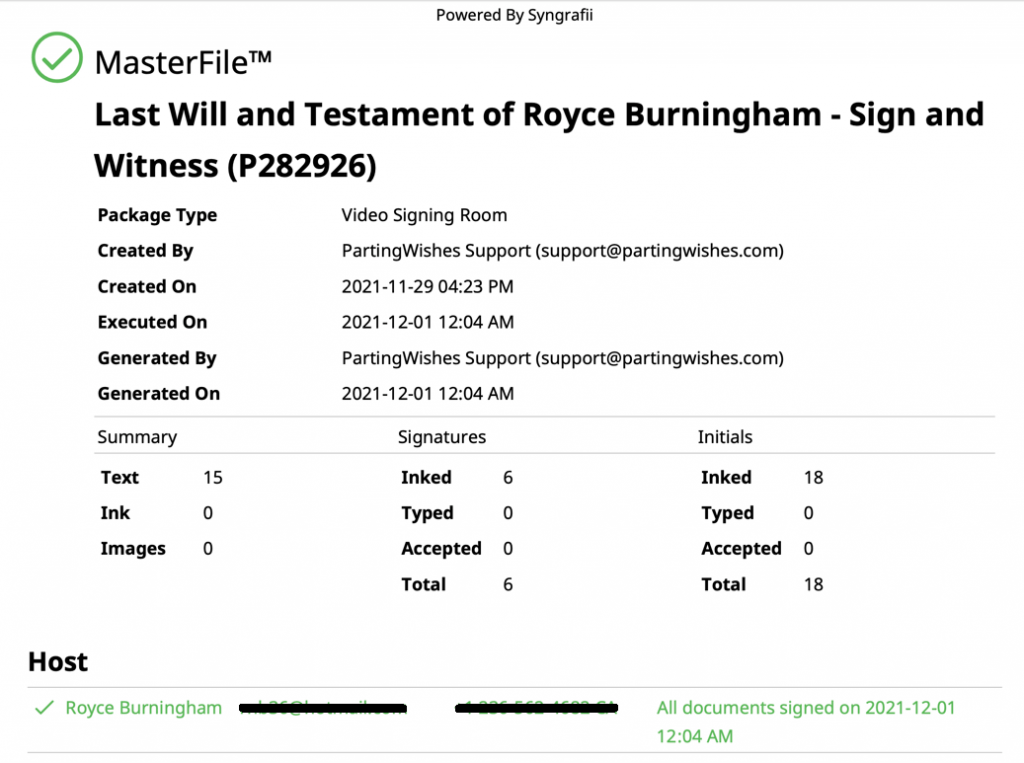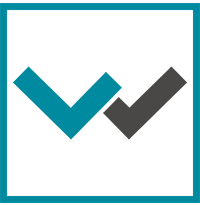One of the most common misconceptions associated with writing your own Will is around the signing process. We answer this question ten times a day, so I thought I would provide some explanation. Many of you may have heard of an Affidavit of Execution, but you may be unsure of what it is, and what role it plays in authenticating your Will.
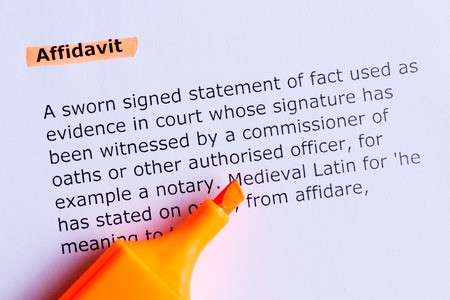
Copyright: sph1410 / 123RF Stock Photo
Writing your own Will – is it legal?
There are generally speaking three approaches to writing your Will.
1. Working with an estate planning lawyer or Will writer.
In some Canadian provinces (particularly BC and Québec) Notary Publics also have the authority to prepare a Will for you. Writing your Will with a lawyer or notary gives you a good chance of getting a quality Last Will and Testament (but not a guarantee!!). The downside of course is that it is often expensive, and certainly inconvenient to arrange an appointment with a lawyer. Even if you managed to write your Will, you probably wouldn’t make the time to update it to reflect any changes in your circumstances. The time and money barriers are so significant, that in a recent survey we found that 62 percent of Canadians didn’t have a Will. Of those that did, 12 percent were out of date.
2. Using a blank form kit, or handwriting it yourself.
For many years the only option available to people who didn’t want to deal with the cost or inconvenience of working with an estate planning lawyer was to use a blank form kit. At one time these were all over television and radio, but generally extremely poor. They led to many errors, and people made classic errors like trying to list all of their assets in their Will. It was actually very difficult to prepare a well drafted Will with trust provisions, alternate scenarios covered, and well documented powers to the executor. Rather than purchasing a kit, many people try to write their own Will starting with a blank sheet of paper. It’s a daunting task, and extremely difficult. Even a seasoned estate planning lawyer would struggle to do this.
3. Using an interactive online Will writing services.
About fifteen years ago, a new breed of Will service became available. Online interactive Will writing services work in a similar way to tax preparation software. In fact Intuit developed their own as an adjunct to their popular TurboTax software (it was discontinued a few years ago). This type of service uses similar software to the tools used by estate planning lawyers, but gives you direct access to it. It checks for errors, is specific to your Province, and updated to reflect changes in the law. It is obviously far more convenient than making an appointment with a lawyer, and about ten percent of the cost.
But is it legal to write your own Will?
Everybody has a right to prepare their own Will. There is absolutely no legal requirement to use a lawyer or notary public. That isn’t to say that there isn’t a role for legal advice in estate planning. But most Wills do not benefit from receiving legal advice. The only legal requirement is that the Will is written down – verbal, video, or audio Wills are not legal. This doesn’t mean that it must be in your handwriting, it means that it must be on paper, typed, printed or handwritten.
There are rare exceptions like nuncupative Wills and privileged Wills that apply to active military service men and women. But for most people these special laws don’t apply.
There is absolutely nothing in law that requires a lawyer or notary to write your Will. In fact, there have been famous cases of Wills being written on the side of a tractor or on the back of a closet, and have both been accepted as legal Wills.
The signing process
So what makes a piece of paper a legal Last Will and Testament? It all comes down to the signing process. You must sign the Will in the presence of two witnesses, who then have to, in turn, sign the document. In other words, all three of you will be in the room, with your Will. You sign the document, and then your two witnesses sign in your presence and in the presence of each other.
However, there are restrictions on who can serve as a witness. In Canada, the witnesses cannot be beneficiaries, and in most Provinces they cannot be the spouse of a beneficiary. In fact, we advise that the witnesses should have nothing to gain whatsoever from the Will, so family members of any kind are generally inappropriate witnesses. Even if they are not direct beneficiaries, they may be the spouse of an alternate beneficiary.
It is best to select friends, neighbours, co-workers, any adults who have no vested interest in the Will. Your witnesses do not have to read the Will, or check it. Your Will is a private document, so it is common for people to cover the contents of their Will with a blank sheet of paper to protect their privacy.
You simply state to your witnesses that you are signing your Will. They must watch you sign, and then add their own signature to the document.
Although not a legal requirement, we recommend as a best practice that you and the witnesses initial each page of the document as well. This guards against somebody swapping out pages after you have died.
Once you have signed, and the witnesses have signed, then you have a legal Last Will and Testament.
What about an Affidavit?
One of our most frequently asked questions is the role of the Affidavit. Does a lawyer have to stamp the Will? or do you need to notarize it?
You do not have to place any kind of stamp onto your Will. But if you wish, you can have your witnesses sign an “Affidavit of Execution” that you can attach to your Will. An Affidavit is a sworn statement, taken under oath, in the presence of a commissioner of oaths (Notary Public). I can’t help feeling that the solemnity of this process is a little tarnished by the proliferation of Notary services cropping up on Kijiji for “$20 cash….I will travel to your home”
In the US, you can have your documents notarized at any UPS store.
The purpose of the Affidavit is to help your document through probate. If there are concerns about the conduct of the signing process, then a judge may call upon your witnesses to swear under oath that the signing was all above board. The judge would need to know that nobody pressured you into signing something that you didn’t want to sign. And that you were aware of what you were doing.
By signing an Affidavit of Execution at the time of signing, your witnesses are proactively swearing under oath that everything about the signing process was appropriate. In the US, they call this “self-proving” the Will.
The Affidavit is actually a very simple document, and we provide it as a free download as part of our service.
What other steps are optional?
Once you have your Will, and your (optional) Affidavit of Execution, you may feel a compelling need to file the Will somewhere. In reality there is no central registry for Wills. Some Provinces, notably British Columbia, allow you to register the location of your Will with the Vital Statistics Agency. But this is simply registering the location of the Will, that has very limited utility. I find it interesting that over the years the cost of this service has dropped each year. It is currently $17 (a few years ago it was $25).
There are two obvious problems with this service; firstly your Will is a piece of paper, which is likely to move about with you. If you move your piece of paper, there is a fairly high likelihood that you would forget to inform the Provincial Vital Statistics Agency that your document had moved. In addition, it requires that your Executor and loved ones know that you have filed the location of the document with the agency. They would have to make the appropriate enquiry.
At LegalWills.ca, we have a service called MyMessages that does exactly the same as the BC Wills Registry, but is free, and more intelligent. We generate keyholder ID’s and distribute the information when unlocked by your keyholders. When you update your Will, you can take that opportunity to review your messages and update them at the same time.
Most other Provinces do not offer any service for registering your Will or the location of your Will.
What do I do with my Will once it is signed?
Once you have signed your Will, you must store it in a place that is known and accessible to your Executor. On a daily basis we receive calls from distraught relatives that “my father had a Will, but we can’t find it. What can we do?”. The answer is not a great one – there is not much that you can do if you cannot find a Will.
It is particularly sad when somebody has taken the time to prepare their Will, but didn’t think to tell anybody where it was stored. The net result is that the person died without a Will. The courts will therefore distribute their estate according to the intestate laws of their Province.
The decision on where to store the Will is a personal one. You would want to keep the document private, but secure. But not so secure that nobody can find it. Our general recommendation is that you give it to your Executor in a sealed envelope. If you were to perish in a house fire, your Will is going to survive you. Alternatively, there are some decent inexpensive fireproof safes available now, and even fireproof bags.
Be careful if you choose to store your Will in a bank deposit box. You must make sure that your Executor has access to the deposit box at the appropriate time. If the Will is in the box, the Executor cannot gain the authority that they need to access the box !!
What about copies?
There should only be one original Will. It is certainly possible to make copies, but you should clearly mark each of these as a copy. You have to update your Will throughout your life. It would be a pain to have to manage half a dozen different Wills in the possession of different people.
Some probate courts will accept a copy of a Will if it is clear that the original has been lost (for example, in a house fire).
What about my online Will?
There is a version of your Will online within your account (not in plain text, I should add. Nobody can see the online version of your Will except you). This is there for your convenience only, and makes updating your Will a more convenient process. The online version of your document is not a legal Will and the courts will not accept it.
Sadly, although it is 2016 and we can sit in self driving cars, the law for Wills hasn’t changed in 500 years. A Will must be written on paper and signed in ink. The courts do not accept digital versions of your Will, even with digital signatures.
What else should I do?
You have signed your Will, and possibly had your witnesses sign an Affidavit. You have then picked out a great place to store the Will that is known and accessible to your Executor. The one additional step that you may want to consider is compiling an inventory of your assets and important contacts. You can either print and store it with your Will, or you can use an Executor assistance service like our MyLifeLocker.
Your Executor will have to gather your assets, and with no documented guidance, it can be an extremely challenging task. Just consider for a moment that if you were to die today, would your Executor be able to find all of your assets? would they have access to all of the accounts that they need? Is it possible that some of your assets could go undiscovered? Who is going to take care of all of your online accounts?
We recommend having some level of documentation for your assets. It makes your Executor’s task much more manageable and ensures that they don’t miss anything.
Then what happens to my Will?
There is a common misconception that your Executor will be able to appear at your local bank, with the Will in hand, and empty your bank accounts. Clearly, there is a security issue with this, as the bank would have no way of verifying that the Will is genuine. Nor would the bank know if this document was your most recent Last Will and Testament. Fortunately, there is a process for this.
Once you have passed away, your Executor will take your Will to the probate courts, perhaps with the signed Affidavit. They will present themselves as the Executor named in the Will. The courts will then establish the legitimacy of the Will, and if everything looks good, they will grant your Executor the power to act as your estate administrator.
The Executor is given a “grant of administration” or “grant of letters probate” which gives them the authority to act as your estate administrator. It is this document that the banks and financial institutions need to see, and it allows the Executor to gather up your estate. This process is called “probating the Will”.
Once your Executor has collected your assets (and debts, taxes and funeral expenses have been paid), then they can distribute everything according to the instructions in the Will.
In summary
Hopefully, this has demystified the process a little. You can write your own Will, and then sign it in the presence of two witnesses. There is no requirement for a lawyer’s stamp, an Affidavit, the registering of the Will, or any other official process. Your document is a legal Will as soon as it is signed and witnessed.
Knowing this, you should really write your Will now. It only takes about 20 minutes!
- Probate in Canada – What it is, what it costs, how to reduce fees. - January 6, 2025
- All about Trusts – how to include a Trust in your Will - June 9, 2022
- The Holographic Will – what is it and when should you use one? - May 18, 2022
